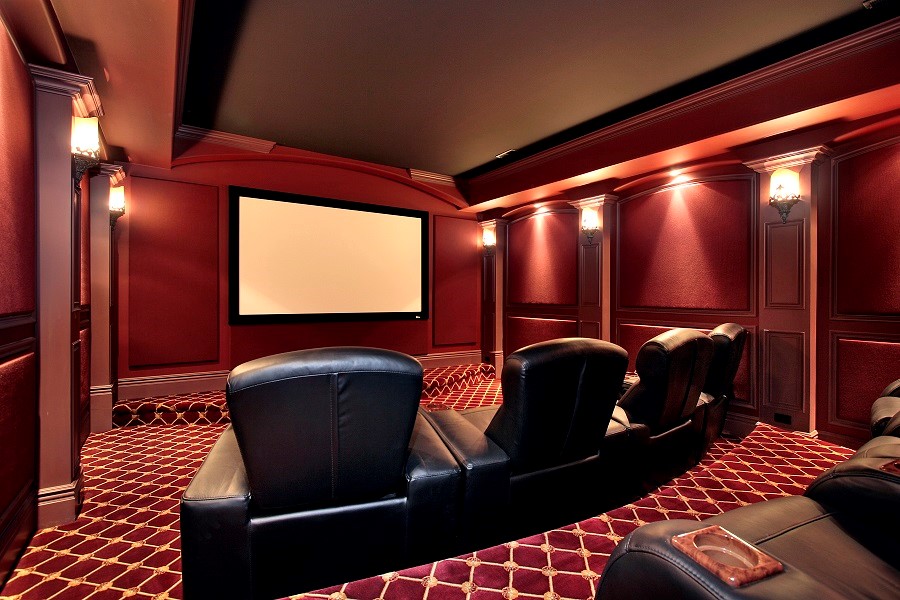Optimize Your Home Theater for Perfect Sound
Check Out These Home Audio Video Solutions for Your System

One of the most important aspects of your home theater is how it sounds.
Movie and TV show soundtracks are mixed precisely and intentionally, thus requiring a high-end system to fully enjoy.
But more than just installing new speakers, the sound quality of a space is not just affected by technology – but also by the room itself.
In this blog, we’ll show you what it takes to optimize a room for sound to get the most out of your Wolfeboro, NH home audio video system.
Ready to learn more? Just keep reading.
See Also: Design Tips You Need To Know For Your Home Theater
Adding Acoustic Treatments
If you’ve ever spoken in an unfurnished room, you know how distracting echoes can be.
Try placing a surround sound system in there, and all you’ll get is a cacophony of sound.
That’s why most home theaters are carpeted and feature large, plush seating. The plushness helps absorb wayward sound. That, in turn, allows your system to sound fuller and more robust.
But sometimes soft seating isn’t enough to kill the echo. In those cases, acoustic treatments can be added to the walls and ceiling.
Acoustic treatments are typically flat panels, either upholstered or made from a soft material, that help absorb even more audio.
That way, you only hear what you’re supposed to.
Acoustic Treatments and Immersive Audio
Adding acoustic treatments to your space is typically a good idea, but what happens when you’re using an immersive audio system like Dolby Atmos?
Atmos and other 3D audio systems use the natural reflections of the room to make a small speaker arrangement sound much bigger.
In those cases, you’ll need your installer to calibrate the speakers to ensure that they’re firing in the right direction. It’s important to be precise because anything less could lessen the effect.
Soundproofing
Many homeowners don’t realize there’s a difference between acoustic treatments and soundproofing.
The former helps the sound within the room, the latter helps prevent it from escaping.
Soundproofing helps prevent audio from bleeding into other spaces, so you can listen to your movies and shows at higher volumes without disturbing your family.
Soundproofing techniques vary, but they can include everything from lining your walls with sound absorbent material to completely decoupling the walls. In that case, your integrator would essentially build a room within your room to cushion from sound-bleed.
- Tags: Acoustic Treatments | Home Theater



